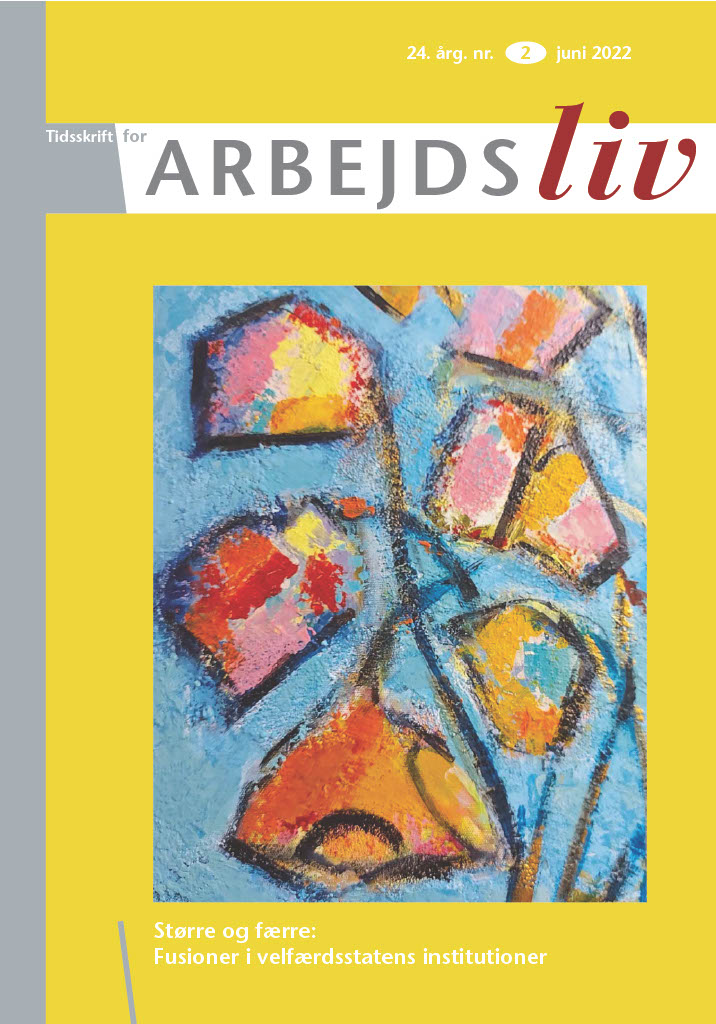Contraforming as epistemic practice – the becoming of professional knowledge through syncretic practices in schools
DOI:
https://doi.org/10.7146/tfa.v24i2.133018Keywords:
Pædagogers faglighed, Skolereform, Professioner, Fritidspædagogik, Synkretisk praksisAbstract
A national school reform (2014) and following reorganizations of the management of schools has merged leisure time centers and schools in Denmark. The pedagogues who were previously primarily employed at leisure time centers now also work in schools. Through fieldwork in four different primary and lower-secondary schools the article explores how the pedagogues’ expertise emerges through syncretic practices where elements that originally have been considered non-coherent are made cohesive. The analysis shows that the pedagogues’ practices are defined by dynamics as; “imitation” and “parallel work”, which are analyzed as different expressions of an emergent “expertise of the counterform”. The expertise of the counterform is unfolded as a metaphor for the type of expertise the pedagogues deploy as an unheeded effect of the merge. “Counterforming” occurs as the pedagogues grab onto issues ungrabbed by the schools, or as they sustain and support activities not sustained nor supported by the schools. The expertise of the counterform illustrates both potentials as the pedagogues work with the well-being of children, but problems arise as the conditions for work are individualized and fragmented. As such the pedagogues must guess and sense how to be relevant and competent in school, and so they end up miming school practices. Practices that the school leaders and teachers declaredly are eager to unsettle. To this point the article suggests that syncretic practices put pedagogues in individualized positions making them vulnerable and open to critique.
Downloads
Published
How to Cite
Issue
Section
License

This work is licensed under a Creative Commons Attribution-NonCommercial 4.0 International License.
Forfattere, der publicerer deres værker via dette tidsskrift, accepterer følgende vilkår:
- Forfattere bevarer deres ophavsret og giver tidsskriftet ret til første publicering, samtidigt med at værket ét år efter publiceringen er omfattet af en Creative Commons Attribution-licens, der giver andre ret til at dele værket med en anerkendelse af værkets forfatter og første publicering i nærværende tidsskrift.
- Forfattere kan indgå flere separate kontraktlige aftaler om ikke-eksklusiv distribution af tidsskriftets publicerede version af værket (f.eks. sende det til et institutionslager eller udgive det i en bog), med en anerkendelse af værkets første publicering i nærværende tidsskrift.
- Forfattere har ret til og opfordres til at publicere deres værker online (f.eks. i institutionslagre eller på deres websted) forud for og under manuskriptprocessen, da dette kan føre til produktive udvekslinger, samt tidligere og større citater fra publicerede værker (se The Effect of Open Access).





